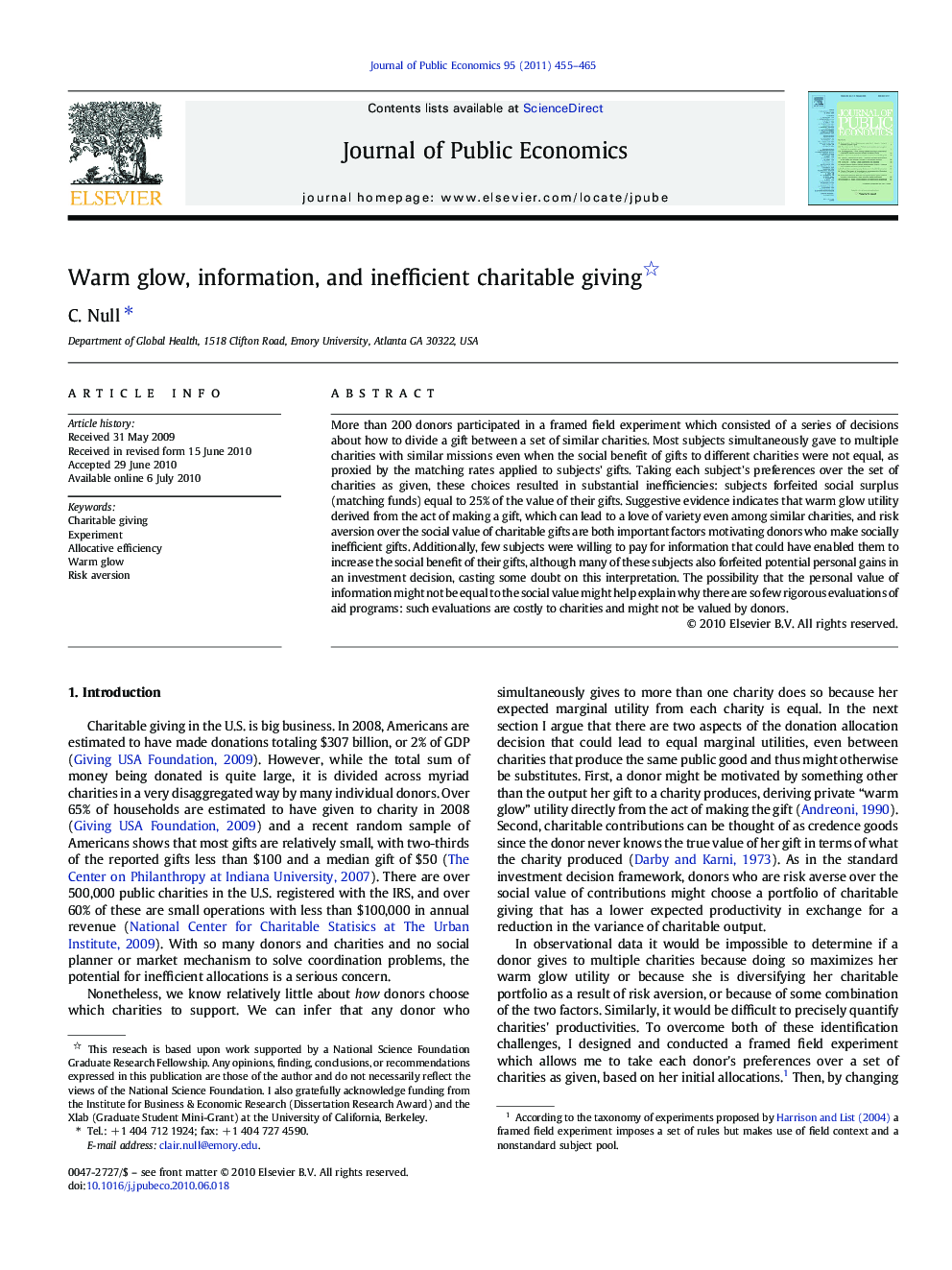| Article ID | Journal | Published Year | Pages | File Type |
|---|---|---|---|---|
| 970031 | Journal of Public Economics | 2011 | 11 Pages |
More than 200 donors participated in a framed field experiment which consisted of a series of decisions about how to divide a gift between a set of similar charities. Most subjects simultaneously gave to multiple charities with similar missions even when the social benefit of gifts to different charities were not equal, as proxied by the matching rates applied to subjects' gifts. Taking each subject's preferences over the set of charities as given, these choices resulted in substantial inefficiencies: subjects forfeited social surplus (matching funds) equal to 25% of the value of their gifts. Suggestive evidence indicates that warm glow utility derived from the act of making a gift, which can lead to a love of variety even among similar charities, and risk aversion over the social value of charitable gifts are both important factors motivating donors who make socially inefficient gifts. Additionally, few subjects were willing to pay for information that could have enabled them to increase the social benefit of their gifts, although many of these subjects also forfeited potential personal gains in an investment decision, casting some doubt on this interpretation. The possibility that the personal value of information might not be equal to the social value might help explain why there are so few rigorous evaluations of aid programs: such evaluations are costly to charities and might not be valued by donors.
